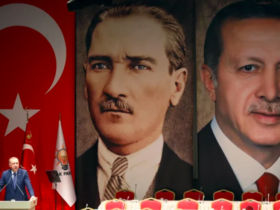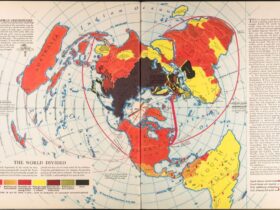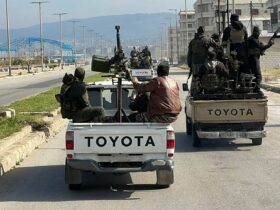US elections
The US held its 2020 presidential election, in which Republican Donald Trump and Democrat Joe Biden fought for the country’s leadership.
Preliminarily, Biden appears to have won, receiving between 279 to 290 votes from electors (winning requires a minimum of 270 votes). Trump, however, has not admitted defeat, noting that the election was not yet over.
Biden’s headquarters, despite suspicious voting dynamics (including a sudden “jump” in votes for Biden as a result of mail-in ballots), has already sent a request for recognition to the US General Services Administration. Meanwhile, the director of the GSA, Emily Murphy, still refuses to recognize Biden as the elected president.
This is a special election, the counting of the results taking several days: those who voted are already beginning to doubt the honesty of the preliminary results.
Mainstream media and social networks, despite the alleged adherence to a neutral approach, had a clear preference for Biden. Thus, Trump’s tweets were either banned or marked with various restrictive labels, while the overwhelming majority of positive articles about Biden were published, and posts of famous personalities who are happy about his election were replete.
The media believes that in the first weeks of his presidency, Biden will follow a path disgusting to Trump: for example, he will sign a series of decrees that will overturn many of his predecessor’s key decisions, including:
– Instituting tougher coronavirus measures. Trump was rebuked by many for not doing enough to fight the virus.
– Reversing the decision to withdraw the US from the World Health Organization. Trump had previously accused the WHO and China of problems related to the Covid-19 virus.
– Softening immigration policies for Latin American and Muslim countries.
– A re-signing of the Paris Climate Change Agreement.
The desperate fight and disputes over the results demonstrate the importance of these elections. The choice of the current leader will determine not only the internal, but also the global geopolitical course. A Biden presidency would mean a return to politics in the spirit of Barack Obama and Hillary Clinton, it would mean a return to new neoliberal measures at home and involvement of the United States in unnecessary external conflicts.
When it comes to geopolitical issues, Biden, in accordance with neoliberal logic, will only intensify confrontation with a number of countries (including Turkey, Russia, China and others). It is possible that Biden will not wage such an obvious campaign against Beijing, but under Biden (if the court recognizes his victory) there will be no significant differences with the previous Trump’s policy on such important issues as Taiwan, Hong Kong, South China Sea, Xinjiang, Tibet and the situation with religious affiliation and human rights in China. In addition, US forces will continue to shake the foundations of Hong Kong to use this leverage against China.
Joe Biden previously said he would advocate the change of power in Turkey and called President Recep Tayyip Erdogan an autocrat. The Republican People’s Party (CHP) leader Kemal Kılıçdaroğlu congratulated Biden on his victory, while the Turkish leader himself remains silent.
So far, the results are not clear. It is possible that Trump and Biden will be sued at the highest level – Biden’s victory has yet to be determined.
Nagorno-Karabakh conflict
Azerbaijan announced the capture of Shusha, the key city in strategic and cultural terms in Nagorno-Karabakh.
On November 8, shooting on the Shusha line appeared across social networks and Telegram channels, all a few kilometers from Stepanakert.
Congratulations were sent to Baku by Turkey, as one of the key allies of Azerbaijan. Turkish Foreign Minister Mevlut Cavusoglu expressed his wish that the glorious Azerbaijani flag would fly in Shusha and never come down.
A new stage of confrontation in Nagorno-Karabakh started on September 27. Battles were fought daily, and the mediation of third countries had not yet led to any significant results.
Azerbaijan began making progress after the capture of Jebrail, after which they managed to take the southern part of Nagorno-Karabakh all the way to the border with Armenia. After an unsuccessful attempt to move toward Lachin, Azerbaijan concentrated towards Shusha.
A visit to Egypt: French desire to re-colonize Africa
French Foreign Minister Jean-Yves Le Drian was in Egypt on Sunday, where he tried to ease tensions with the Arab world after the scandal surrounding the reissue of cartoons of the Prophet Muhammad.
Le Drian met with President Abdel Fattah al-Sisi, Foreign Minister Sameh Shoukry and Tayeb, head of Al-Azhar, Egypt’s highest Muslim authority, while speaking about his country’s “deep respect” for Islam, and at the same time realizing the differences.
Le Drian’s long-awaited meeting with Tayeb, head of Al-Azhar, considered the leading religious institution of Sunni Muslims, was the subject of the September decision of the French satirical magazine Charlie Hebdo to reprint the cartoons.
Last month, Tayeb condemned French President Emmanuel Macron’s remarks about “Islamist separatism” racist, and hate speech.
Tayeb’s position remained unchanged on Sunday, when he reiterated his defense of the sanctity of Islam. The image of the Prophet is strictly prohibited in Islam.
Demonstrations broke out in several Muslim majority countries after Macron defended the right to publish cartoons of the Prophet Muhammad, which many considered offensive and attacks on Islam.
Al-Sisi himself spoke out about last month’s disagreement, saying that insulting the prophets amounts to underestimating the religious beliefs of many people.
Drian’s interests, however, were not related to a real apology, but rather to an effort to gain Egypt’s support for Libyan issues. Libya’s topic was given a significant place in the negotiations.
Among the other countries particularly offended by the situation in France was Senegal. Thousands of protesters in Senegal burned French flags and photos of President Emmanuel Macron for his defense of the right to ridicule religion and portray the Prophet Mohammed in cartoons.
Demonstrators in the capital Dakar on Saturday also called for a boycott of French goods, as anger grew despite the French leader’s attempts to calm the situation.
Elections in Moldova
On November 1, the first round of presidential elections took place in the Republic of Moldova. The leader of the “Action and Solidarity” Party, Maia Sandu surpassed the incumbent president Igor Dodon in the first round of presidential elections in Moldova. This was confirmed by the final results of the vote, published on Monday on the website of the Central Election Commission, reports Interfax.
According to the published data, in the first round of elections Sandu obtained 36,16% – 487 635 votes, and Dodon – 32,61% – 439 866 votes. They will fight in the second round of elections, which will be held on November 15.
Maia Sandu, former employee of the World Bank and senator of the Soros Foundation in Moldova, is considered a pro-European candidate. Igor Dodon is a pro-Russian candidate.
At the same time, Igor Dodon maintains friendly relations with Recep Tayyip Erdogan, President of Turkey. In 2018, Moldova extradited to Turkey 8 of its citizens suspected of having ties with the Fethullah Gulen movement (FETÖ). Maia Sandu then spoke out against the deportation of Gulen supporters and called for demonstrations against Erdogan’s visit to Moldova.
Sandu’s victory and increased Moldova’s dependence on the EU could have a negative impact on relations with Turkey. The rights of the Gagauzian-Turkic people living in the south of Moldova, who have autonomous status, are also under question.
Elections in Guinea
The Supreme Court of Guinea approved the victory of the incumbent President Alpha Condé in the October 18 elections, local media reported on Sunday. The decision made Condé the president for the third time.
A new constitution adopted in March in a referendum ended the presidential term limits, allowing Condé to run for the third term.
Conde’s Rally of the Guinean People (RPG) and Cellou Dalein Diallo’s UFDG accused each other of fuelling intercommunal tensions during the election campaign.
Several people, including a police officer, were killed in clashes between police and protesters during the campaign and after the announcement of the election results.
Diallo, called on Tuesday for a protest against the election results in the streets of the capital Conakry. A request that could not attract his supporters, who say that too much blood has been spilled.
Many Conakry residents are concerned about the large presence of security forces in opposition strongholds on the outskirts of the city, including the main districts of Hamdallaye-Bambeto, while others simply refused to go out because they were tired of constant street protests.
Preparations for elections in Jordan
Jordan, which has suffered economically from the effects of the coronavirus, is preparing for legislative elections. Voters will go to the polls on Tuesday.
Calls across social networks to postpone elections have been increasing, but the government says the vote will be held despite the pandemic. Campaigning is currently mostly being conducted via social networks.
Jordan is an ally of the United States and was the second Arab country after Egypt to sign a peace treaty with Israel.

















Leave a Reply